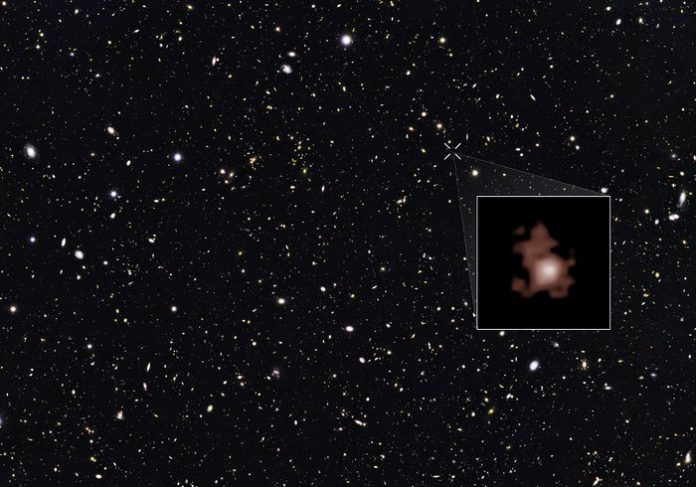Astronomers have detected the oldest (and the most distant) black hole from the early universe which dates from 400 million years after the big bang. Surprisingly, this is about a few million times the mass of Sun. Under the current understanding of formation of black hole, such a massive black hole should take billions of years to grow to this size but, Intriguingly, then the universe was merely 400 million years old.
Earlier, researchers had, by combining data from Chandra X-ray Observatory and JWST, found a black hole in UHZ1 galaxy that dates from 470 million years after the big bang.
Now, Using James Webb Space Telescope (JWST) data, astronomers have detected a blackhole in GN-z11 galaxy that dates from 400 million years after the big bang. This makes this black hole the oldest ever observed (BHs are not directly observed but detected indirectly by the tell-tale glow of a swirling accretion disc around it) dating from early universe. The light took nearly 13.4 billion years to reach the JWS telescope.
This newly detected black hole from early universe is supermassive, about a few million times the mass of Sun. What is intriguing about this black hole is how it might have such mass to become supermassive.
Black holes are formed from collapse of the remanent of the dead star under gravity when fuel runs out, if the original mass of the star is more than 20 solar masses (>20 M⦿). Supermassive black holes are formed when the original mass of the star is about a hundred times the mass of the Sun.
In line with this, a supermassive black hole like the one detected recently from the early universe should take billions of years to form and grow but the universe was only about 400-million-year-old.
Is there any other way supermassive BHs are formed? Perhaps, the conditions in early universe allowed this black hole to be born big or it devoured matter from its host galaxy into itself at much higher rate than thought to be possible.
***
References:
- NASA 2023. News – NASA Telescopes Discover Record-Breaking Black Hole. Posted 6 November 2023. Available at https://www.nasa.gov/missions/chandra/nasa-telescopes-discover-record-breaking-black-hole/ Preprint available at https://doi.org/10.48550/arXiv.2305.15458
- University of Cambridge Research – Astronomers detect oldest black hole ever observed. Posted 17 January 2024. Available at https://www.cam.ac.uk/research/news/astronomers-detect-oldest-black-hole-ever-observed/
- Maiolino, R., Scholtz, J., Witstok, J. et al. A small and vigorous black hole in the early Universe. Nature (2024). https://doi.org/10.1038/s41586-024-07052-5 Preprint available at https://doi.org/10.48550/arXiv.2305.12492
***






































